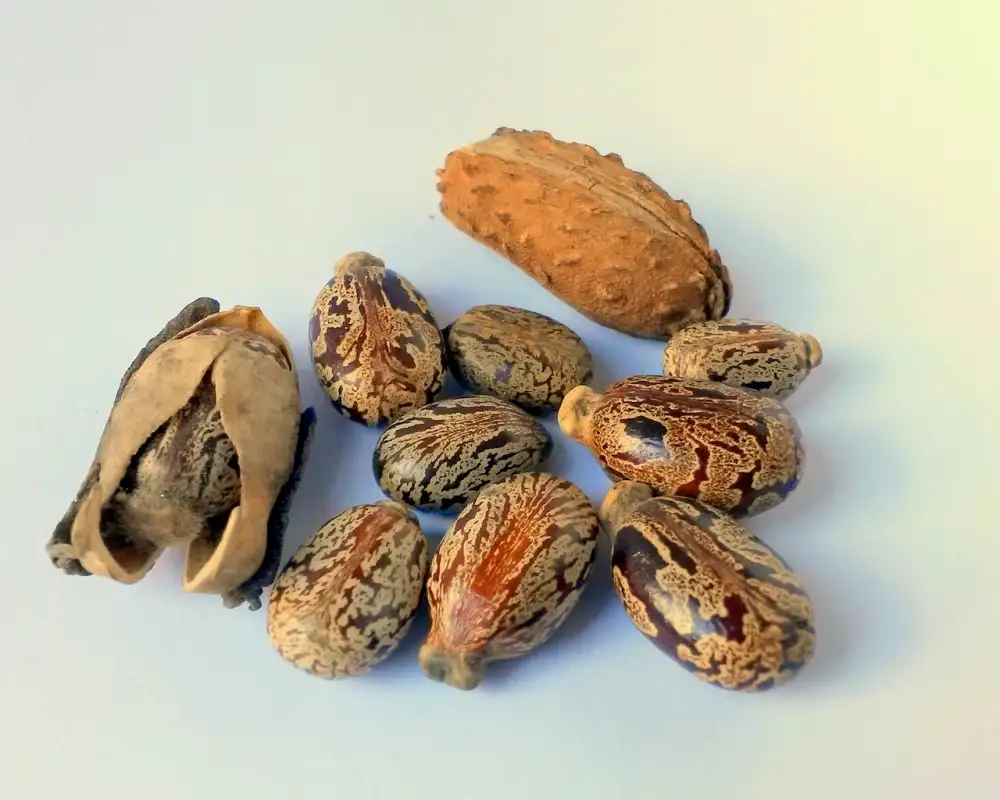Unlock the Power of Seed Oils: A Guide to Boosting Your Health Naturally

Seed oils are derived from various types of seeds, including sunflower, flaxseed, sesame, and pumpkin. These oils have gained popularity in recent years due to their numerous health benefits. Packed with essential nutrients and fatty acids, seed oils offer a natural way to boost your overall well-being. From improving heart health to promoting healthy skin and aiding digestion, incorporating seed oils into your diet can unlock the power of nature's goodness for a healthier you.
Nutritional Value of Seed Oils
Seed oils are not only delicious but also packed with essential nutrients. They are rich in vitamins such as vitamin E, which is a powerful antioxidant that helps protect our cells from damage. Additionally, seed oils contain minerals like magnesium and zinc, which play crucial roles in various bodily functions. These oils also provide a good source of healthy fats, including monounsaturated and polyunsaturated fats, which are important for maintaining overall health. With their impressive nutritional profile, incorporating seed oils into your diet can be a great way to boost your overall well-being.
Omega Fatty Acids in Seed Oils and their Importance for Health
Omega fatty acids are a type of polyunsaturated fat that are essential for our health. Seed oils, such as flaxseed oil, chia seed oil, and hemp seed oil, are rich sources of omega-3 and omega-6 fatty acids. These fatty acids play a crucial role in maintaining the health of our cardiovascular system, reducing inflammation in the body, and supporting brain function. Including seed oils in our diet can help improve heart health, reduce the risk of chronic diseases, and promote overall well-being.
Antioxidant Properties of Seed Oils and their Impact on Health
Seed oils are not only rich in essential fatty acids, but they also possess powerful antioxidant properties that can have a significant impact on our health. Antioxidants help protect our cells from damage caused by harmful molecules called free radicals. These free radicals can lead to chronic inflammation and various diseases, including heart disease and cancer. By incorporating seed oils into our diet, we can boost our antioxidant intake and enhance our overall health.
Seed Oils and Heart Health
Seed oils have been found to have numerous benefits for heart health. They are rich in monounsaturated and polyunsaturated fats, which can help lower bad cholesterol levels and reduce the risk of heart disease. These oils also contain omega-3 fatty acids, which have been shown to decrease inflammation and improve overall heart function. Incorporating seed oils into your diet can be a great way to promote cardiovascular health and maintain a healthy heart.
Seed Oils and Brain Health
Seed oils play a crucial role in maintaining optimal brain health. They are rich in omega-3 and omega-6 fatty acids, which are essential for the development and functioning of the brain. These fatty acids help to build cell membranes in the brain, improving communication between brain cells and enhancing cognitive function. Additionally, seed oils contain antioxidants that protect the brain from oxidative stress and reduce inflammation, which is linked to cognitive decline and neurodegenerative diseases like Alzheimer's. Incorporating seed oils into your diet can support brain health and improve memory, focus, and overall cognitive performance.
Seed Oils and Skin Health
Seed oils are not only beneficial for internal health, but they also work wonders for our skin. These oils are rich in vitamins and antioxidants that nourish and protect the skin. They help to maintain the skin's moisture balance and promote a youthful appearance. Seed oils like argan oil, rosehip oil, and grapeseed oil are known for their ability to hydrate the skin, reduce inflammation, and improve elasticity. They can also help to minimize the appearance of fine lines and wrinkles. Incorporating seed oils into your skincare routine can lead to a healthier, more radiant complexion. So why not unlock the power of seed oils and give your skin the natural boost it deserves?
Seed Oils and Weight Management
Seed oils can also play a role in weight management. While it may seem counterintuitive to consume oil when trying to lose weight, certain seed oils can actually help with the process.
Studies have shown that incorporating seed oils into your diet can increase feelings of fullness and reduce appetite. This is because seed oils contain healthy fats that take longer to digest, keeping you satisfied for longer periods of time.
Additionally, seed oils can help boost metabolism and promote fat burning. They are rich in monounsaturated and polyunsaturated fats, which have been shown to increase the body's ability to burn calories.
When using seed oils for weight management, it's important to choose high-quality options and use them in moderation. Adding a drizzle of seed oil to salads or using it as a cooking oil can provide the benefits without adding excessive calories.
Incorporating seed oils into your weight management plan can be a natural and healthy way to support your goals. However, it's always best to consult with a healthcare professional or registered dietitian before making any major changes to your diet.
Seed Oils and Digestive Health
Seed oils can also play a significant role in promoting digestive health. Many seed oils, such as flaxseed oil and hemp seed oil, are rich in fiber. Fiber is essential for maintaining a healthy digestive system as it helps to regulate bowel movements and prevent constipation.
Additionally, seed oils contain compounds that have been shown to have anti-inflammatory properties. Inflammation in the digestive tract can lead to conditions such as irritable bowel syndrome (IBS) and inflammatory bowel disease (IBD). By incorporating seed oils into your diet, you may be able to reduce inflammation and alleviate symptoms associated with these conditions.
Furthermore, some seed oils, like pumpkin seed oil, have been found to have antimicrobial properties. This means they can help fight off harmful bacteria in the gut and promote a healthy balance of gut flora. A healthy gut microbiome is crucial for proper digestion and nutrient absorption.
To incorporate seed oils into your diet for digestive health, try drizzling them over salads or using them as a dressing base. You can also add them to smoothies or use them in cooking as a healthier alternative to other cooking oils.
In conclusion, including seed oils in your diet can support digestive health by providing fiber, reducing inflammation, and promoting a healthy gut microbiome. So unlock the power of seed oils and boost your digestive health naturally!
Incorporating seed oils into your daily routine is a simple yet effective way to boost your health naturally. With their numerous health benefits, including high nutritional value, omega fatty acids, antioxidant properties, and positive impact on heart, brain, skin, weight management, and digestive health, seed oils are truly a powerhouse of goodness. So why not unlock the power of seed oils and take a step towards a healthier lifestyle today? Start incorporating them into your cooking or use them as salad dressings to enjoy their incredible benefits and celebrate freshness in every food creation.
Published: 08. 12. 2023
Category: Health



